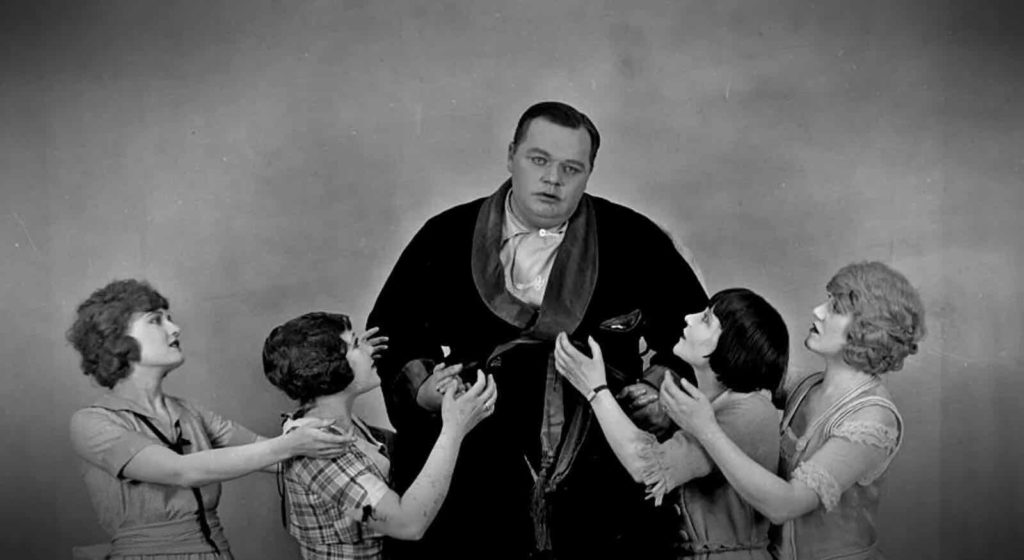
There is no shortage of biographies and memoirs of the men and women who have shaped the cinema. Ray Carney’s work on John Cassavetes is exhaustive and all encompassing, Richard Brody’s Jean-Luc Godard: Everything Is Cinema is a perfect mixture of the director’s personal life and his professional development, and Patrick McGilligan’s George Cukor: A Double Life is as thorough as thorough can be. And these are only the first three outstanding instances that come to mind.
But the book in question is not a traditional biography. This book takes the facts of a real life and endows them with a humanity that is absent from the official record of this life through the fictional invention of its author, creating a memoir that is artifice; and in reality, a novel. The book in question is Jerry Stahl’s I, Fatty.
I, Fatty, as its title suggests, tells the life story of Roscoe Arbuckle. Arbuckle, better known now for the scandal that ended his career, was one of the earliest and most influential innovators of screen comedy. In the world of film literature Arbuckle, perhaps because of the infamy of his scandal, has been relegated to a footnote or a breezy chapter in a book on Buster Keaton or some extensive survey of the silent cinema as a whole. Those writers of non-fiction, the good film historians such as Walter Kerr and Rudi Blesh, who treat Arbuckle and his accomplishments with the appropriate reverence and respect have never been concerned with the man who truly was “Fatty” Arbuckle.
It is in creating a portrait of a man that Jerry Stahl excels; even if the man in his book is as much a fabrication as it is historical fact. It is enlightening in its suggestion of a human being behind the “Fatty” persona. To have the reader grapple with not only the facts already available in the works of Kerr and Blesh but the very concept that there was an emotional creature behind this famous persona who lived and felt the tumultuous events that we know made up Arbuckle’s life. This suggestion is the real “food for thought”, the true success of I, Fatty.
It only helps that Stahl’s voice for Arbuckle is flawlessly consistent, imbued with the slang and jargon popular in the 1910s and 1920s. It helps further that Stahl is very able to conjure a sense of time and space in his novel, making tangible the dusty back lots of old Hollywood, the worn out and rotting theaters on the vaudeville circuit as well as the cold dank Kansas shack where Arbuckle was born. It is these two principle elements that tie I, Fatty to our visceral understanding of reality, an understanding that, if absent, would render Stahl’s rendition of Arbuckle a tasteless caricature.
